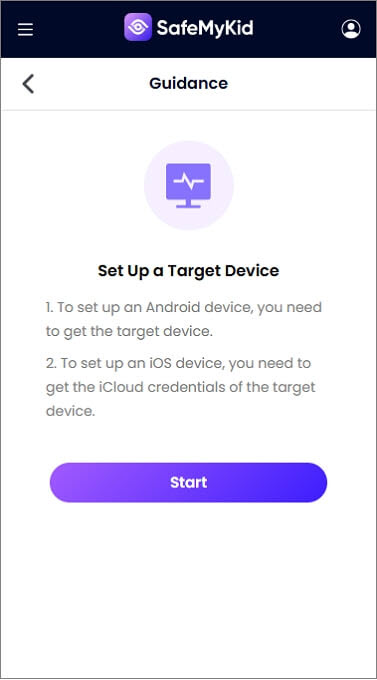9 Emotional Affair Signs: How to Identify Them and Protect Your Relationship

Emotional affairs can often be the silent destroyers of relationships. Unlike physical cheating, these affairs don't always involve sex, but the emotional betrayal can be just as hurtful. As we dive into the topic of emotional affair signs, it's important to realize that these behaviors can sneak up on you.

In this blog, we’ll break down the 9 most common emotional affair signs, how they develop, and what you can do to recognize them before they cause significant harm to your relationship.
What Is an Emotional Affair?
An emotional affair is when someone forms a deep emotional connection with another person outside of their relationship, typically someone of the opposite sex. Unlike physical affairs, these emotional bonds are about intense closeness, shared confidence, and emotional intimacy.
The tricky thing about emotional affair signs is that they can often feel harmless or even positive at first. You might think you're just developing a strong friendship with someone, but soon, you’re sharing intimate details and feelings that should be reserved for your partner.
This emotional bond can eventually lead to flirting, secrecy, and a sense of betrayal, even though there hasn’t been any physical cheating.
The 9 Emotional Affair Signs You Should Watch For

Recognizing the emotional affair signs early can help prevent deeper relationship damage. Below is a breakdown of the most telling behaviors that indicate emotional infidelity.
| Emotional Affair Signs | What It Means |
|---|---|
| 1. Frequent Contact | You or your partner are constantly in touch with someone else, whether through texts, calls, or social media, even at odd hours. |
| 2. Constant Sharing | You share personal details and intimate experiences with the other person more than with your partner. |
| 3. Frequent Thoughts | You find yourself thinking about the other person often, even when spending time with your partner. |
| 4. Feeling Understood | You believe the other person "gets" you more than your partner does. |
| 5. Inappropriate Sharing | You start discussing relationship problems or personal struggles with the other person instead of your partner. |
| 6. Unfair Comparisons | You frequently compare your partner to the other person and feel dissatisfied. |
| 7. Spending More Time Together | You make excuses to spend time with the other person, even when it takes away from your relationship. |
| 8. Secrecy | You hide messages, calls, or meetings from your partner. |
| 9. Less Time for Your Partner | You prioritize the emotional affair over spending time with your partner, leading to emotional distance. |
Emotional affairs often start subtly, making them hard to recognize at first. However, certain behaviors can signal that a harmless connection is turning into something more serious.
1. Frequent Contact
Consistently texting, emailing, or calling someone at odd hours, especially when your partner isn’t around, is a red flag. While friendships are natural, excessive communication can blur emotional boundaries.
2. Constant Sharing
If you confide in someone else more than your partner, it’s a major emotional affair sign. Relying on another person for emotional support, especially about relationship struggles, creates an unhealthy imbalance.
3. Constant Thoughts
Thinking about someone other than your partner frequently—especially during intimate moments—is a key indicator of an emotional affair. If their opinion or reaction matters more than your partner’s, emotional intimacy is growing.
4. Feeling Understood
Believing someone else “gets you” better than your partner can be a slippery slope. If this leads to resentment toward your partner, it erodes trust and weakens your relationship.
5. Inappropriate Sharing
Oversharing personal details or venting about your partner to someone else deepens emotional attachment. This creates an unhealthy bond and weakens your connection with your partner.
6. Unfair Comparisons
Idealizing someone else while criticizing your partner is unfair. Emotional affairs often involve comparisons that make your partner seem inadequate, further fueling the emotional connection.
7. Spending More Time Together
If you make excuses to be around someone else instead of your partner, it’s a major warning sign. Prioritizing this person over your relationship slowly chips away at emotional intimacy.
8. Secrecy
Hiding conversations, deleting messages, or lying about meetings signals an emotional affair. If secrecy feels necessary, it means you’re aware you’ve crossed a line.
9. Less Time for Your Partner
The more time and energy you invest in someone else, the more emotional distance grows between you and your partner. This can weaken your relationship beyond repair.
How SafeMyKid Can Help Protect Relationships and Ensure Emotional Health

If you're concerned about an emotional affair or any other digital threat to your relationships, a useful tool like SafeMyKid can help. SafeMyKid provides discreet monitoring of your partner’s or child’s phone activity, tracking everything from text messages and social media interactions to GPS location and browsing history.
Whether you're worried about emotional affairs or just want to ensure your loved ones are safe online, SafeMyKid offers a comprehensive solution to keep an eye on digital behavior without the need for direct intervention. Here's how it works:
How to Set Up Safemykid to Check Emotional Affair Signs:
Step 1. Sign Up and Create an Account
Visit the SafeMyKid website and create an account using your email address.

Step 2. Set Up the SafeMyKid App
For iOS devices: no app installation is required. Simply log in with iCloud credentials.
For Android devices: download the SafeMyKid app and follow the installation instructions.

Step 3. Use Safemykid to Check Emotional Affair Signs
Once installed, access the SafeMyKid dashboard, where you can track messages, call logs, and social media interactions. Use the dashboard to review chat conversations and location tracking.

How to Protect Your Relationship from Emotional Affairs
Emotional affairs can creep into relationships without warning, but you can take proactive steps to safeguard your bond. Here’s how to prevent emotional infidelity and strengthen your relationship:
1. Prioritize Open Communication
Talk openly with your partner about your feelings, needs, and concerns. When you maintain honest communication, there’s less room for emotional gaps that could be filled by someone else.
2. Set Healthy Boundaries
Friendships outside your relationship are normal, but boundaries are crucial. Avoid discussing personal relationship problems with someone else, and be mindful of sharing deep emotional connections with others.
3. Spend Quality Time Together
Busy schedules can create emotional distance. Prioritize date nights, deep conversations, and shared activities to reinforce intimacy and connection.
4. Reignite Emotional and Physical Intimacy
Emotional affairs often stem from unmet emotional needs. Regularly express affection, appreciation, and support for each other. Small gestures like compliments, hugs, and love notes can make a big difference.
5. Recognize the Warning Signs Early
Be aware of emotional affair signs in your own behavior and your partner’s. If you notice excessive secrecy, emotional detachment, or someone else becoming a priority, address it immediately.
6. Discuss Social Media and Digital Boundaries
Online interactions can quickly become emotionally charged. Set clear boundaries on social media use, texting, and who you engage with emotionally.
7. Seek Professional Help if Needed
If emotional distance has already formed, consider relationship counseling. A therapist can help you both communicate better, rebuild trust, and strengthen your bond.
By maintaining strong communication, setting boundaries, and prioritizing your relationship, you can prevent emotional affairs and build a lasting, trusting connection.
FAQs About Emotional Affair Signs
To wrap up this comprehensive guide, here are some of the most frequently asked questions about emotional affair signs. These questions aim to clear up any doubts and help you make an informed decision when assessing emotional boundaries in your relationship.
1. How do emotional affairs start?
Most emotional affairs begin as platonic friendships. Over time, as you share deeper emotions, rely on each other for support, and communicate frequently, the bond intensifies beyond normal friendship. Emotional intimacy may gradually replace the connection with your partner, leading to secrecy and emotional withdrawal from your relationship.
2. Are emotional affairs considered cheating?
While an emotional affair doesn’t involve physical cheating, it is still a betrayal of trust. Many people feel that emotional affairs can be even more damaging than physical infidelity because they erode emotional intimacy, create distance, and often lead to deeper heartbreak.
3. Can an emotional affair turn into a physical one?
Yes, emotional affairs can easily escalate into physical affairs. The emotional intimacy formed creates strong romantic and sexual tension, which can eventually lead to physical encounters if boundaries are not set early on.
4. How do emotional affairs impact relationships?
Emotional affairs can cause severe emotional distress and damage trust in a relationship. Partners often feel betrayed, emotionally neglected, and insecure. Over time, emotional affairs can weaken the foundation of a relationship, making reconciliation difficult.
5. Can emotional affairs be unintentional?
Yes, many emotional affairs start innocently. A deep friendship, a supportive coworker, or an online connection can gradually turn into an emotional dependency without conscious intent. However, once emotional intimacy surpasses the connection with your partner, it becomes a problem.
Final Thoughts
Recognizing the emotional affair signs early can help protect your relationship from long-term damage. If you find yourself or your partner engaging in any of these behaviors, it's important to address them head-on. Open, honest communication is key to resolving issues before they spiral out of control.
By using tools like SafeMyKid, you can also ensure that both your partner and your family are protected from unhealthy emotional attachments or external influences that could jeopardize your relationships. Prioritize emotional honesty and set healthy boundaries to maintain trust and intimacy.


